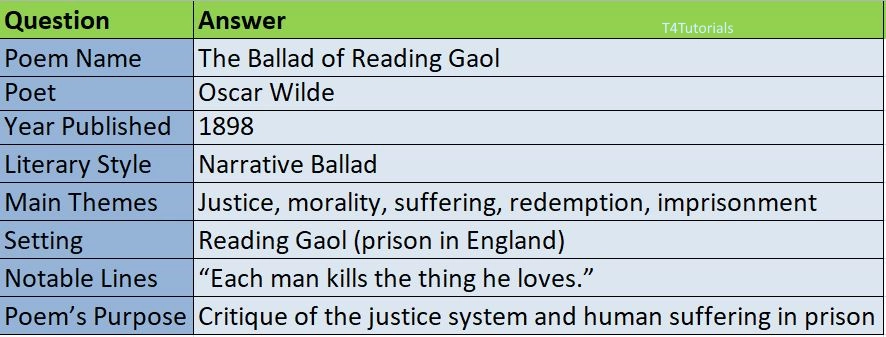Summary:
“The Ballad of Reading Gaol” is a long narrative poem by Oscar Wilde, published in 1898 under the pseudonym C.3.3 (his prison cell number). The poem reflects Wilde’s experiences during his two-year imprisonment in Reading Gaol for homosexual offenses under Victorian laws. The poem revolves around the execution of a fellow prisoner, a man who murdered his wife. Wilde uses this tragic event to explore themes of justice, morality, human suffering, and redemption. He argues that all men kill the things they love, whether through betrayal, neglect, or violence. The poem also criticizes the harsh and inhumane prison system, emphasizing the suffering of prisoners who are deprived of their dignity and hope. The poem is deeply emotional, filled with symbolism and powerful imagery, showing the psychological impact of imprisonment. It ultimately conveys a universal message about guilt, punishment, and the fragility of human life.
10
Score: 0
Attempted: 0/10
Subscribe
| Question | Answer |
| Poem Name | The Ballad of Reading Gaol |
| Poet | Oscar Wilde |
| Year Published | 1898 |
| Literary Style | Narrative Ballad |
| Main Themes | Justice, morality, suffering, redemption, imprisonment |
| Setting | Reading Gaol (prison in England) |
| Notable Lines | “Each man kills the thing he loves.” |
| Poem’s Purpose | Critique of the justice system and human suffering in prison |